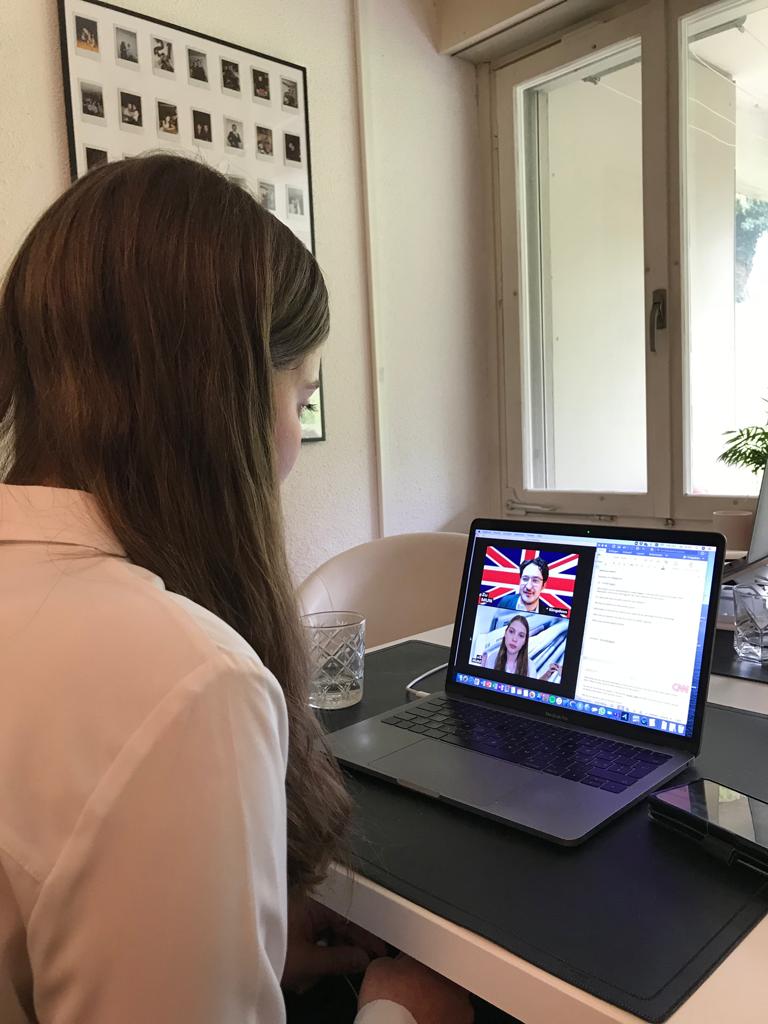Interview with the United Kingdom (Gordan Kauric) in the United Nations Security Council (UNSC)
Hello Gordan, you are representing the United Kingdom of Great Britain and Northern Ireland in the Security Council on the topic of the militarization of the Arctic. What are the UK’s main interests in this discussion?
First of all, we have to preserve peace to uphold a stable region in the Arctic. It is important that indigenous people are not left out of this discussion and can maintain their livelihoods. That is why for us the natural preservation of the region is very important. in the opinion of the UK climate change should also be discussed, which not all members agree upon due to the realm of this council. However, climate change is happening twice as fast in the arctic region and climate change is also connected to everything. When sea levels rise, people have to migrate and technically climate refugees count as a security emergency. Trade deals are of course also very relevant but a balance between security and commerce have to be reached. Denuclearization of the region should be reached because of the tension between the concerned parties. The arctic acts as a middle-ground, as a peaceful, neutral, climate responsible region.
As a veto power were you able to push for your interests?
That is an interesting question because in the first debate some other veto powers were missing. The US and Russia were not present and so the tension that was expected did not happen. A lot of countries were therefore able to find a common ground very fast. However, now that Russia and the USA are present they mostly agree with our discussions.
Do Russia and the US agree on everything with the other delegates or are there some points that are being fought over?
The timeline is something we don’t agree on. The Nordic countries and the UK as well as Armenia believe that we can demilitarize the Arctic as fast as possible. Indigenous people are important to the UK in this discussion. Because with every year that the militarization keeps going on, infrastructure that has to be built for it destroys the nature and livelihood of indigenous people. Thus, we believe it is crucial to demilitarize as fast as possible. We understand though, that big nations like the US and Russia have a lot of nuclear weapons in the region and might need more time than we demand. That seems to be the only disagreement of the Council as of now.
Why did you decide to join the Security Council?
I like the topics and as I am doing Geography in my minor, so it is pretty interesting to do something that connects climate change with politics and business.
What aspects of the Security Council or your topics do you personally find most interesting?
The most interesting part to me is that you need some knowledge of law. For example, how to implement international law and where the countries set the boundaries between national and international law.
What have you learned in the Security Council or in MUN in general?
I did not know about the Arctic Council before and that Switzerland is an observer state. Even China and India are observer states which make the Council more international and less exclusive to the Nordic countries.
How has it been a different experience for you being part of a virtual conference in comparison to being part of an in-person conference?
The socials are quite different. I am a very social person and at in-person conferences, it is a lot of fun to meet people from all around the world. You get the chance to talk to them during the breaks and also in the evening. There you can talk about different topics apart from MUN like politics and languages. But it is very cool of ZuMUN to organize online socials and I even got to meet some people there. Yesterday, for example, our committee joined the WHO and we played some games together. There I met some other delegates from different places and we got to talk to the chairs. It was pretty cool.
Photo: David Jakab, Pexels


Comments are closed.